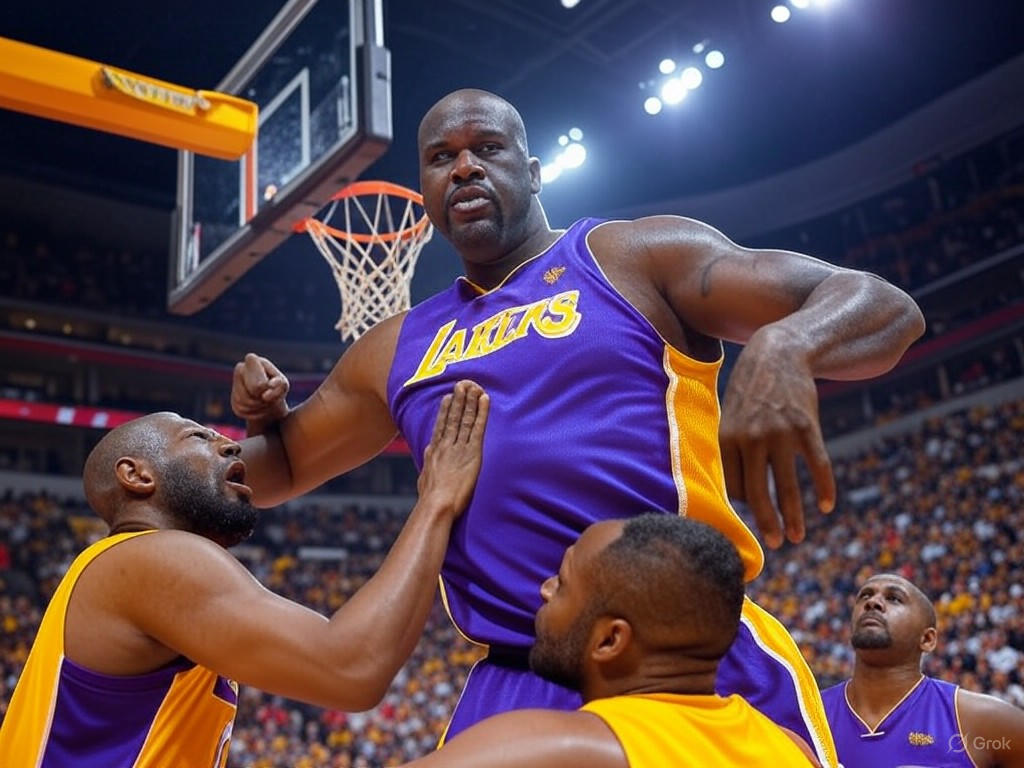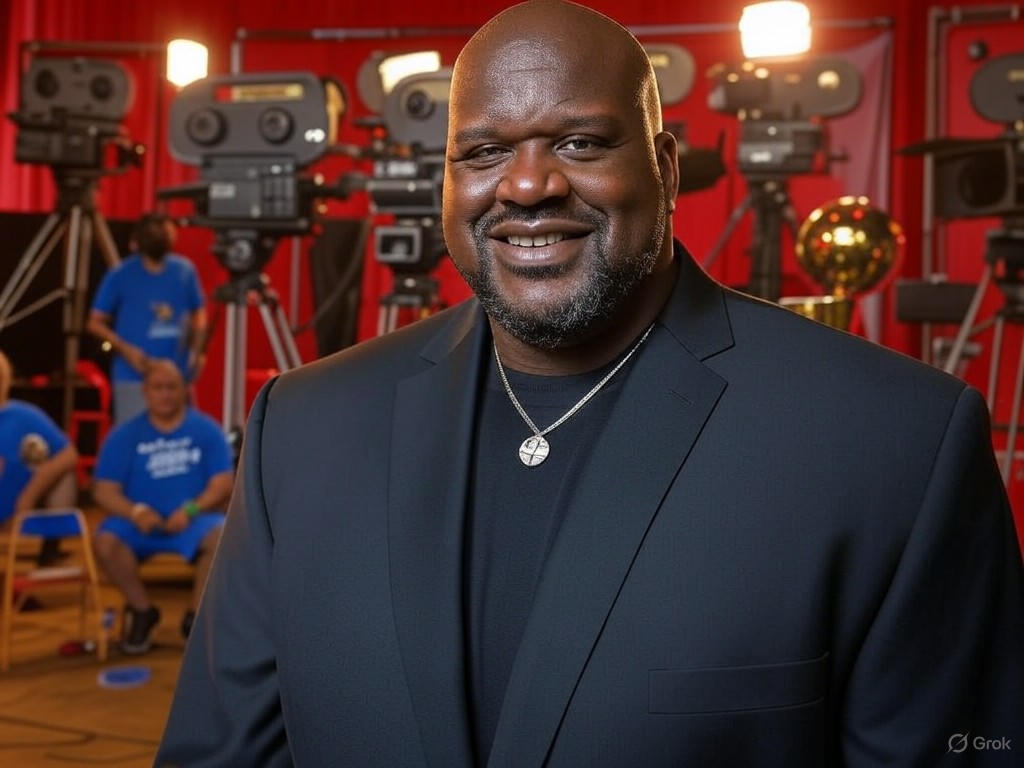Shaquille O’Neal: From NBA to Hollywood Star
In an era where individual talent often transcends traditional boundaries, the announcement of Shaquille O’Neal’s star on the Hollywood Walk of Fame in 2026 serves as a compelling narrative of American ingenuity and perseverance. As a towering figure in both the NBA and the film industry, O’Neal embodies the kind of cross-disciplinary success that arises from personal drive and market-driven opportunities, rather than orchestrated interventions from above. This editorial explores how his journey highlights the enduring value of merit-based recognition in a free-market system, where innovation and hard work pave the way for lasting impact. Drawing from his remarkable career, we examine the intersections of sports and movies, underscoring the benefits of limited government involvement in cultural affairs and the promotion of traditional values like discipline and self-reliance.
The Allure of Crossover Success
Shaquille O’Neal’s path from the basketball court to the silver screen is a quintessential American story, one that reflects the fluidity of opportunity in a dynamic economy. Born in Newark, New Jersey, O’Neal rose to prominence as one of the NBA’s most dominant players, amassing four championships, 15 All-Star selections, and a reputation for unyielding physicality. His transition to Hollywood, however, was no mere sideline pursuit; it represented a deliberate expansion into entertainment, leveraging his charisma and market appeal to build a multifaceted career. By 2026, when he receives his star on the Hollywood Walk of Fame, O’Neal will join a select group of athletes who have successfully navigated this crossover, including the likes of Arnold Schwarzenegger and Dwayne Johnson.
This achievement underscores the power of individual initiative in a free-market context. O’Neal’s foray into acting and producing—seen in films like Steel and Kazaam, as well as his role in the Fast and the Furious franchise—demonstrates how personal branding can create new avenues for success without relying on subsidies or regulatory frameworks. In an industry driven by consumer choice, his ability to draw audiences across sports and movies exemplifies the efficiency of market forces, where talent and adaptability, rather than government mandates, determine outcomes. As The Hollywood Reporter notes in its coverage of the 2026 honorees, such recognitions often celebrate figures who embody versatility, reinforcing the idea that economic freedom fosters cultural richness.
Yet, this crossover is not without its challenges. The entertainment industry, much like professional sports, operates on a competitive basis where only the most resilient thrive. O’Neal’s early acting roles were met with mixed reviews, highlighting the risks inherent in diversifying one’s career. Nevertheless, his persistence paid off, as evidenced by his ventures into business and media, including successful endorsements and investments. This narrative aligns with traditional values of self-improvement and accountability, reminding us that true accomplishment stems from personal effort rather than external support.

Shaquille O’Neal in his prime, powering through defenders during an NBA game, illustrating the athletic foundation that launched his broader career.
Analyzing the Impact: Sports, Movies, and Cultural Trends
Delving deeper, O’Neal’s impending honor invites a broader analysis of how sports and movies intersect in American culture. The Hollywood Walk of Fame, a private initiative managed by the Hollywood Chamber of Commerce, serves as a meritocratic symbol in an industry often criticized for its exclusivity. Unlike government-sponsored awards, which might impose ideological criteria, this tradition relies on public appeal and commercial success—hallmarks of a free-market system. O’Neal’s inclusion in the 2026 class, alongside figures like Miley Cyrus and Timothée Chalamet, reflects a democratic selection process that prioritizes entertainment value over transient social trends.
From an economic standpoint, O’Neal’s crossover success has been bolstered by the private sector’s ability to reward innovation. According to data from ESPN, O’Neal’s NBA earnings exceeded $292 million, much of which was supplemented by lucrative Hollywood deals and endorsements. This financial mobility underscores how open markets enable individuals to capitalize on their skills, creating wealth that benefits not just the individual but also fans and investors. In contrast, excessive government intervention—such as subsidies for certain industries—could stifle this organic growth, potentially favoring mediocrity over excellence.
Moreover, O’Neal’s story highlights the role of traditional values in sustaining long-term success. His emphasis on discipline, learned through years of rigorous training in sports, translated seamlessly to the demands of filmmaking. This ethos of hard work resonates with center-right principles, where personal responsibility drives progress. As The Wall Street Journal reports, O’Neal has built a diversified portfolio including restaurants, real estate, and tech investments, all predicated on the same entrepreneurial spirit that fueled his athletic career. Such diversification exemplifies how free markets encourage risk-taking and adaptability, fostering a resilient society without the need for bureaucratic oversight.
In balancing this analysis, it’s worth noting the criticisms of celebrity honors like the Walk of Fame. Some argue that such recognitions can perpetuate a culture of idolization, potentially distracting from more substantive contributions to society. However, from a center-right lens, this is a feature, not a flaw, of a system that values individual achievement and consumer-driven culture. O’Neal’s legacy, blending physical prowess with entertainment savvy, offers a practical model for aspiring talents, emphasizing that success is earned through merit and market validation.

Shaquille O’Neal engaging in a lively film scene, capturing his charismatic transition from sports icon to movie star.
Evidence and Broader Implications
To substantiate this narrative, consider the evidence of O’Neal’s influence. Statistics from NBA.com reveal his unparalleled dominance, with career averages of 23.7 points and 10.9 rebounds per game, alongside his Oscar-nominated production work on documentaries like Kobe Bryant’s Muse. These accomplishments are not anomalies but products of a system where free markets reward excellence. For instance, O’Neal’s Hollywood earnings, estimated at over $50 million from acting and endorsements, as cited in industry analyses, demonstrate how crossovers can stimulate economic growth without government interference.
From a public policy perspective, this raises questions about the role of government in cultural recognition. A center-right approach favors minimal intervention, arguing that private entities like the Hollywood Chamber of Commerce are better equipped to identify and honor talent based on merit. Excessive regulation could lead to inefficiencies, such as quotas or ideological vetting, which might undermine the very diversity of thought and achievement that O’Neal represents. Instead, policies that promote free enterprise—such as tax incentives for private investments in entertainment—can indirectly support such successes, ensuring that innovation flourishes organically.
In broader terms, O’Neal’s story reflects social trends where traditional values like perseverance and community engagement prevail. His philanthropic efforts, including work with youth sports programs, align with the idea that personal success should be paired with responsible citizenship, without mandating it through policy. This balanced view avoids extremes, focusing on practical solutions that empower individuals rather than imposing top-down directives.
A Reflection on Lasting Legacy
In conclusion, Shaquille O’Neal’s 2026 Hollywood Walk of Fame star is more than a personal accolade; it is a testament to the enduring power of free markets and traditional values in shaping American culture. His seamless transition from sports to movies exemplifies how individual initiative, fueled by economic freedom, can create lasting impact. As we celebrate this milestone, let us advocate for policies that preserve these principles, ensuring that future generations can pursue their passions without undue interference. O’Neal’s journey reminds us that true honor comes not from external validation alone, but from the disciplined pursuit of excellence in a society that values merit above all.

